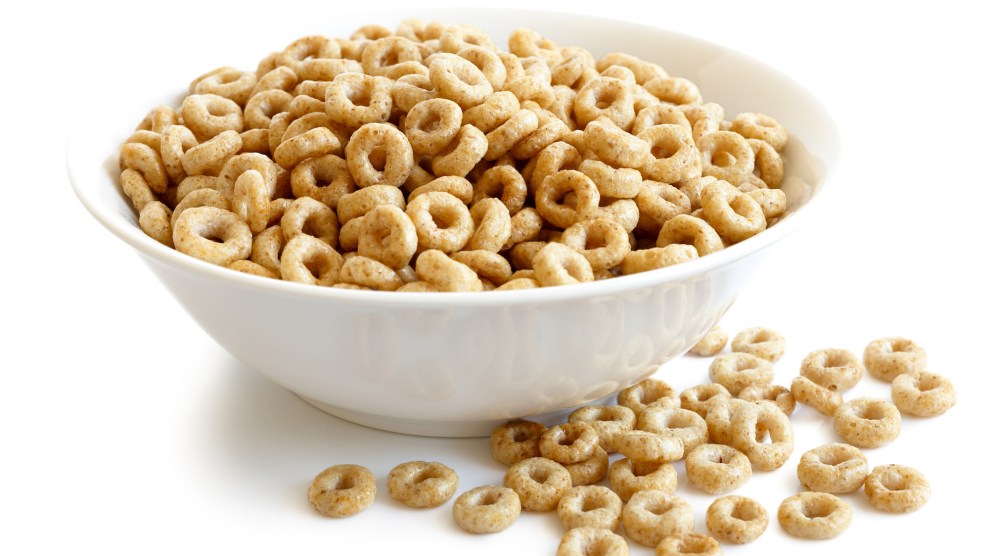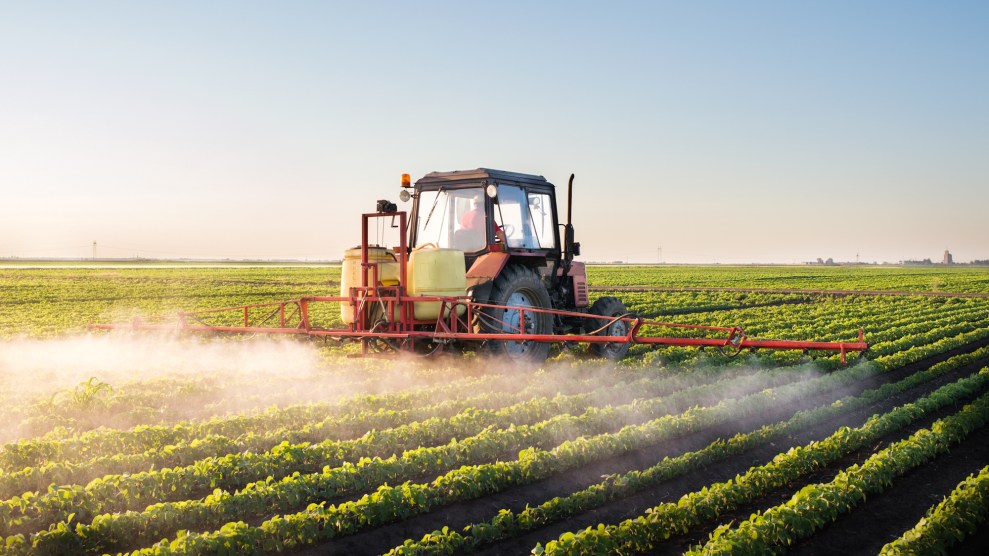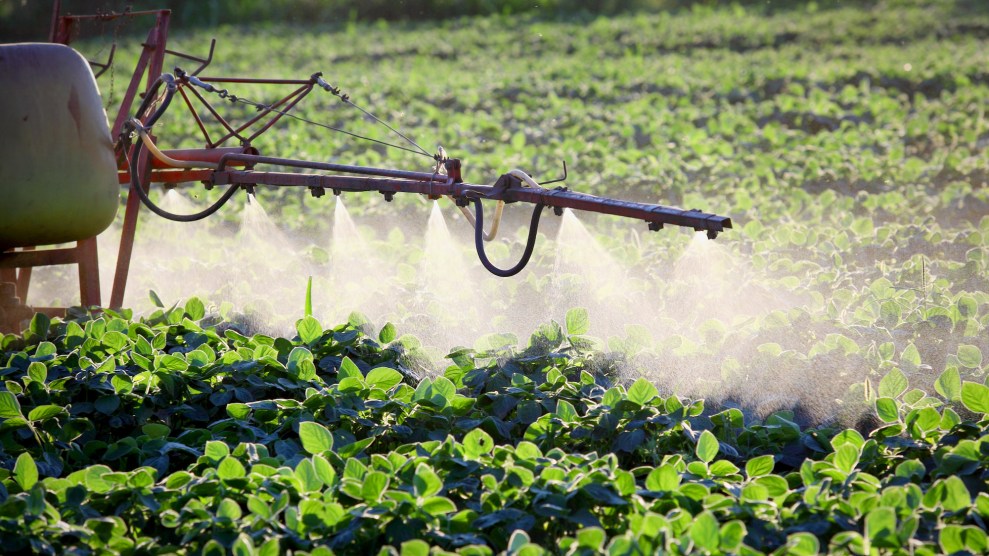
etienne voss/Getty
In a landmark ruling last Friday, a California Superior Court ordered Monsanto to pay $289 million in damages to a groundskeeper after a jury agreed that a key chemical in Monsanto’s Roundup herbicide was a significant cause of his terminal cancer. The jury also found that Monsanto “acted with malice” in failing to warn him about the potential health effects of the chemical, glyphosate. The ruling paves the way for hundreds of similar cases pending across the country.
Farmers and landscapers the world over use glyphosate to kill weeds, but the chemical has long been controversial. In 2015, the International Agency for Research on Cancer, a part of the World Health Organization, classified glyphosate as “probably carcinogenic to humans,” and again defended that report this year. In 2017, California’s Office of Environmental Health Hazard Assessment added it to their list of cancer-causing chemicals.
And a series of independent studies in the past few years have revealed that small amounts of glyphosate residue end up on the packaged food sold in every aisle of the grocery store. “I have brought wheat crackers, granola cereal and corn meal from home and there’s a fair amount in all of them,” wrote a Food and Drug Administration researcher in an email last year, according to the Guardian.
A report released this morning by the Environmental Working Group (EWG) focused specifically on residue in food products containing oats. It found that many common breakfast cereals and snacks contain levels of glyphosate that it deems harmful, though the Environmental Protection Agency may not.
The EPA, which considers Roundup “not likely to be carcinogenic to humans,” deems an exposure rate of 2 milligrams per kilogram of body weight per day acceptable. EWG, however, calculates that the highest permissible level of exposure, based on the Food Quality Protection Act’s margin of safety for childhood risk, is 0.01 milligram per kilogram of body weight per day.
The EWG tested 29 products, including Cheerios and Quaker Oats granola bars, and found that many of them surpassed the level of glyphosate residue the organization deems safe. The study has limitations: The researchers relied on a small sample size and acknowledged there is a possibility of cross-contamination from nearby crops where the oats were grown. But given that these small amounts of residue accumulate, especially when delivered through foods as ubiquitous as breakfast cereals, the study suggests that parents may have a reason to be cautious.
“That does not mean, ‘Stop eating this bowl of Cheerios right now!’ But then when you think about how people eat these oats,” says Olga Naidenko, senior science adviser at the EWG, “that’s when those numbers start to come into concern.”
An FDA scientist presented data in 2016 that showed glyphosate on several packaged oat products, including some for infants. An independent report by Food Democracy Now also points to Cheerios as containing higher amounts of glyphosate, though not at levels that the EPA would identify as unsafe.
When reached for comment, both Quaker Foods and General Mills, which markets Cheerios, responded that their products are safe, citing the EPA’s acceptable levels.
“Our products are safe and without question they meet regulatory safety levels. The EPA has researched this issue and has set rules that we follow as do farmers who grow crops including wheat and oats,” wrote General Mills spokeswoman Kelsey Roemhildt in an email. “We continue to work closely with farmers, our suppliers and conservation organizations to minimize the use of pesticides on the crops and ingredients we use in our foods.”
An email from a Quaker Foods spokesperson notes similar reasoning: “Any levels of glyphosate that may remain are significantly below any limits and well within compliance of the safety standards set by the Environmental Protection Agency (EPA) and the European Commission as safe for human consumption.”
Monsanto (which is now owned by Bayer) maintains that glyphosate does not cause cancer, and intends to appeal the California court’s decision.
This post has been revised.


















